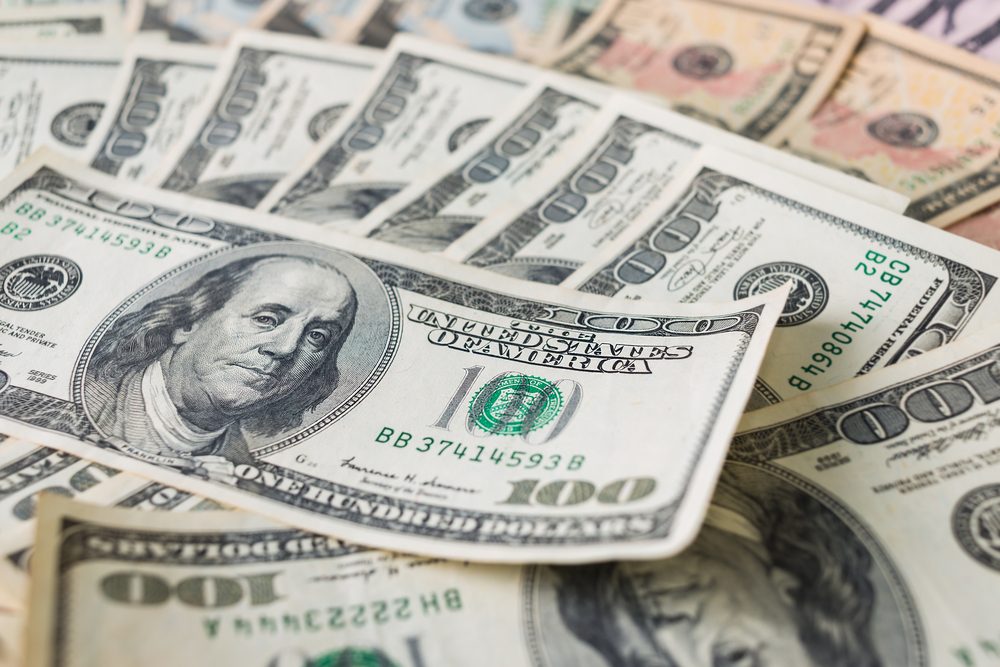
Welcome back. We trust you all had a wonderful Bank Holiday weekend? On to last week, when Federal Reserve Chair Jerome Powell delivered a speech at the Jackson Hole Symposium. At the annual economic conference in Wyoming, Powell said that the ‘consensus view’ at the Fed is that gradual interest rate rises are the best policy.
In the speech, he also said that policymakers are not seeing evidence that inflation is accelerating above target, which will only reinforce the idea that no aggressive hikes are forthcoming. The next hike is expected to come in September and it is possible there could be another increase before the year is out.
UK mortgage approvals fell in July, as did durable goods orders in the US. In Germany, the GDP growth rate for the second quarter of 2018 came in as expected, at 2% year-on-year. The euro won the day on Friday, as it soared against the dollar and made some healthy gains against sterling too. The pound benefited from dollar weakness to reverse the losses made the day before, but it is still showing signs of weakness.
Sterling volatility can reasonably be expected to continue until the markets know more about what type of Brexit deal will be agreed. However, the negative impacts of currency movements can be made redundant by putting tailored treasury management solutions in place. One of our clients, MAG London, has worked with us for almost a decade and we continue to help them hedge their exposure to maintain budgets and afford them peace of mind.
We recently published a case study detailing our working relationship, where you can read a little more about how we help take the pressure off them by removing the foreign exchange risk.
GBP: UK mortgage approvals fall in July
The headline release from the UK on Friday was the UK finance mortgage approvals for July. Last month, British banks approved 39,584 mortgages which was a drop from a downwardly revised 40,330 in June. The figures showed approvals were down 4.3% compared with the same month last year.
It was a fine end to the week for sterling against the dollar, but it fared far worse against the euro. In truth, it was dollar weakness which helped the pound, as Fed Chair Jerome Powell struck a rather dovish tone in a speech.
Today is rather quiet for economic data, but tomorrow we will have the Nationwide housing prices for August.
EUR: euro rallies against dollar
The euro touched a three-week high against the dollar on Friday following Powell’s comments regarding future policy. The dollar’s loss was the single currency’s gain – and not for the first time. It also managed to make some gains against the pound which continues to tread choppy waters.
The main release was the German GDP growth rate for the second quarter of 2018. There were no surprises, with the year-on-year reading coming in at 2%, while on a quarterly basis the economy grew by 0.5%. This was up from 0.4% in the previous period.
Today is fairly quiet, but tomorrow we will see Gfk consumer confidence from Germany and the German unemployment rate on Thursday. We will also see business confidence from the eurozone.
USD: dollar tumbles against the euro
Federal Reserve Chair Jerome Powell delivered a speech at the Jackson Hole Symposium on Friday, in which he said that the Fed is not seeing signs that inflation is accelerating above target. Given that increasing interest rates is a means of keeping inflation under control, the markets took this to mean that the central bank might well not continue hiking rates in an aggressive way. Indeed, Powell admitted as much when he repeated the message that any rate hikes will only be gradual for the foreseeable future.
The dollar swiftly tumbled against sterling and the euro, with the single currency hitting its highest level against the dollar for three weeks. This will no doubt please Donald Trump, although he could be forgiven for having more important things on his mind at the moment.
Durable goods orders were disappointing, as they fell by 1.7% when a drop of 0.5% had been expected by the markets. However, there was some good news, with capital goods orders climbing by 1.4% in July. Non-defence capital goods excluding aircraft are seen as a key indicator for business investment, so the figure is a positive for the US economy.
Today we have the goods trade balance for July, while tomorrow we will have the second estimate of the GDP growth rate for the second quarter of 2018. It is expected to come in at 4% from 2.2% in the previous period.
For more on currencies and currency risk management strategies, please get in touch with your Smart Currency Business trader on 020 7898 0500 or your Private Client trader on 020 7898 0541.

 020 7898 0500
020 7898 0500